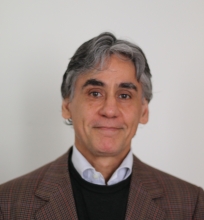World Alzheimer’s Day, on September 21st of each year, is a day on which Alzheimer’s organizations around the world concentrate their efforts on raising awareness about Alzheimer’s and related dementia disorders.
To celebrate the event, we kindly invite you to follow Prof. Claudio's Babiloni seminar entitled “An EEG dream in the Alzheimer’s Disease Day", in the framework of the Sapienza Neuroscience seminars of the series "Ten webinars on brain oscillatory activities underpinning sleep-wake cycle and higher functions and dysfunctions.”
The seminar is scheduled on September 21, 2021, from 04:00 to 05:00 pm CEST (Italian, German, French time) = 09:00 to 10:00 am CDT USA time.
Free Zoom link at: https://uniroma1.zoom.us/
Duration of the webinar: 40 minutes + 20 minutes of discussion
Core Contents:
World Alzheimer’s Day, on September 21st of each year, is a day on which Alzheimer’s organizations around the world concentrate their efforts on raising awareness about Alzheimer’s and related dementia disorders.
Alzheimer’s disease (AD) is the most common (30 million elderly people) worldwide form of diseases belonging to dementia, namely a disabling condition of severe cognitive deficits (e.g., attention, memory, consciousness). AD is considered one of the main societal health problems as no effective disease-modifying drug is available and the financial costs are huge, namely costing US $ 0.7 trillion in 2018 ($ 23,000 for each patient).
According to NIA-AA Research A-T-N Framework (Jack et al., 2018, Alzheimer’s & Dementia), the in-vivo assessment of AD is based on biomarkers of brain amyloidosis, tauopathy, and neurodegeneration. What about brain Neurophysiology? This talk will discuss converging EEG evidence showing that AD substantially affects cerebral neurophysiological ascending and thalamocortical oscillatory sy
Speaker:
Claudio Babiloni is an Associate Professor of Physiology of the Department of Physiology and Pharmacology “Erspamer”, Sapienza University of Rome. He is considered as an expert of neurophysiological oscillatory mechanisms underpinning the maintenance of vigilance in quiet wakefulness as a marker of brain neural efficiency and health. He is immediately Past Chair (2021-2023) of ‘Electrophysiology Professional Interest Are, Alzheimer’s Association.


